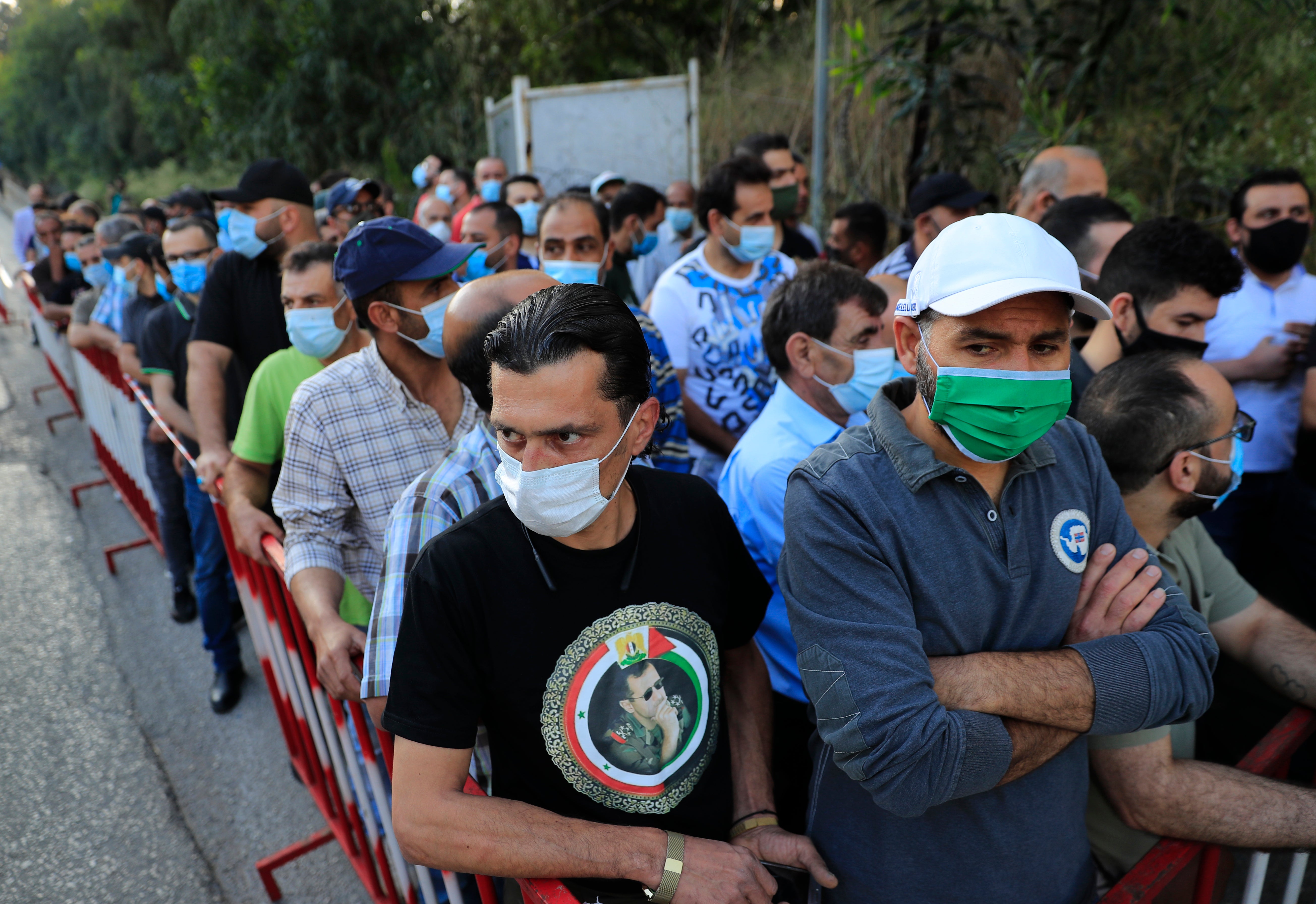Syrians cast early ballots in symbolic presidential vote
Syrians expatriates and those who fled the war are casting their votes at embassies abroad ahead of next week’s presidential election

Your support helps us to tell the story
From reproductive rights to climate change to Big Tech, The Independent is on the ground when the story is developing. Whether it's investigating the financials of Elon Musk's pro-Trump PAC or producing our latest documentary, 'The A Word', which shines a light on the American women fighting for reproductive rights, we know how important it is to parse out the facts from the messaging.
At such a critical moment in US history, we need reporters on the ground. Your donation allows us to keep sending journalists to speak to both sides of the story.
The Independent is trusted by Americans across the entire political spectrum. And unlike many other quality news outlets, we choose not to lock Americans out of our reporting and analysis with paywalls. We believe quality journalism should be available to everyone, paid for by those who can afford it.
Your support makes all the difference.Syrians expatriates and those who fled the war began casting their votes at embassies abroad Thursday ahead of next week’s vote inside the country that is all but guaranteed to give President Bashar Assad a fourth seven-year term as president.
In Beirut a few hundred of Assad supporters turned up early at the hilltop embassy outside the capital to cast their ballot. The election is the second since the country’s civil war broke out 10 years ago and is seen by the opposition as well as Western and some Arab countries as a sham designed to give the incumbent a new mandate with a veneer of legitimacy.
The vote is to be held in Syria May 26, with Syrians abroad voting Thursday.
Assad has been in power since 2000 when he took over from his father, Hafez, who ruled before that for 30 years. Despite the war, which seemed at one point to threaten his rule, Assad remained in power, supported by regional powerhouse Iran and Russia, which sent in military advisers and air power to push back the armed opposition.
The armed conflict has subsided in recent years, but Syria remains torn. Thousands of foreign troops are based in different parts of the country. The elections are not taking place in at least four provinces because they are under the control of the opposition and Kurdish forces, depriving nearly 8 million Syrians of a vote. Many refugees are also unlikely to vote in elections organized in Syrian embassies.
In Lebanon which hosts around a million Syrians - most of them refugees - Lebanese army soldiers stood guard as Syrian citizens who live in Lebanon queued outside their embassy in Yarze, east of Beirut, to cast their ballots. Some shouted slogans in support of Assad as they waited. Others carried his picture and one hung it on his chest.
Two candidates are symbolically competing against Assad in the ballot.
The Biden administration has said it will not recognize the result of Syria’s presidential election unless the voting is free, fair, supervised by the United Nations and represents all of Syrian society.
Syria has been in the throes of civil war since 2011, when Arab Spring-inspired protests against the Assad family rule turned into an armed insurgence in response to a brutal military crackdown. Around half a million people have been killed and half the country's population displaced.